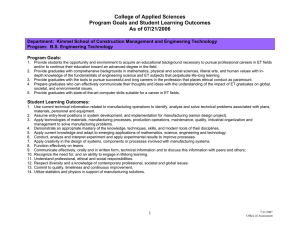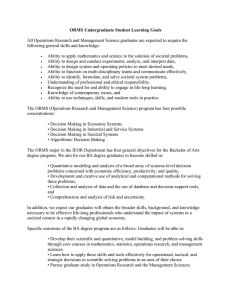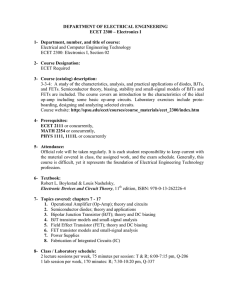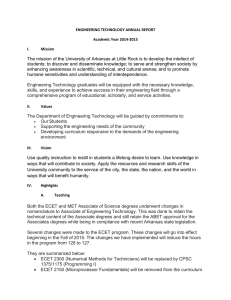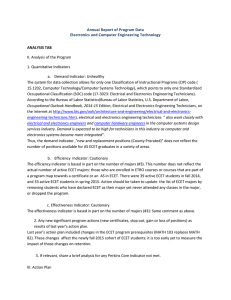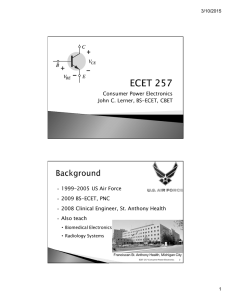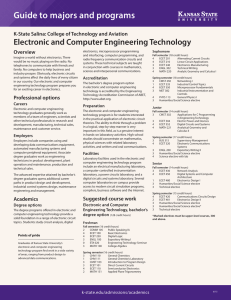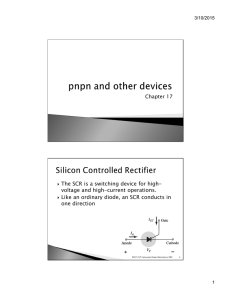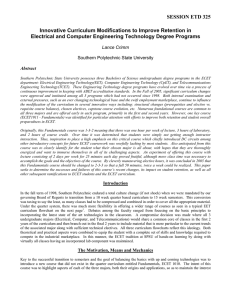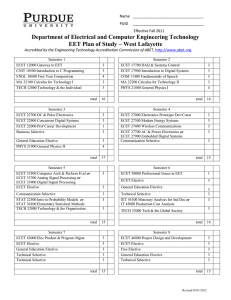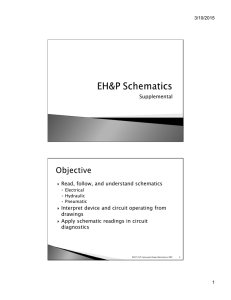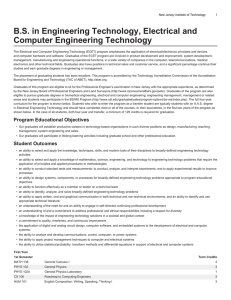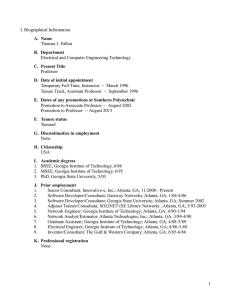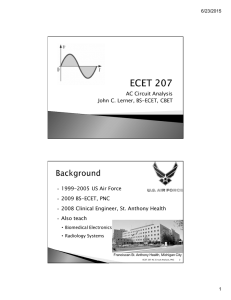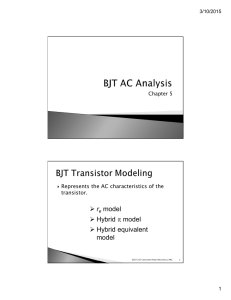College of Applied Sciences Program Goals and Student Learning Outcomes
advertisement
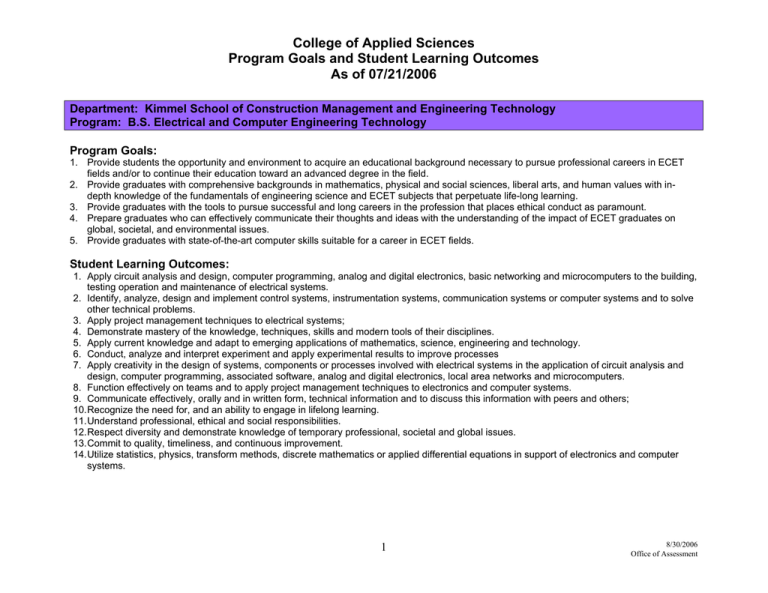
College of Applied Sciences Program Goals and Student Learning Outcomes As of 07/21/2006 Department: Kimmel School of Construction Management and Engineering Technology Program: B.S. Electrical and Computer Engineering Technology Program Goals: 1. Provide students the opportunity and environment to acquire an educational background necessary to pursue professional careers in ECET fields and/or to continue their education toward an advanced degree in the field. 2. Provide graduates with comprehensive backgrounds in mathematics, physical and social sciences, liberal arts, and human values with indepth knowledge of the fundamentals of engineering science and ECET subjects that perpetuate life-long learning. 3. Provide graduates with the tools to pursue successful and long careers in the profession that places ethical conduct as paramount. 4. Prepare graduates who can effectively communicate their thoughts and ideas with the understanding of the impact of ECET graduates on global, societal, and environmental issues. 5. Provide graduates with state-of-the-art computer skills suitable for a career in ECET fields. Student Learning Outcomes: 1. Apply circuit analysis and design, computer programming, analog and digital electronics, basic networking and microcomputers to the building, testing operation and maintenance of electrical systems. 2. Identify, analyze, design and implement control systems, instrumentation systems, communication systems or computer systems and to solve other technical problems. 3. Apply project management techniques to electrical systems; 4. Demonstrate mastery of the knowledge, techniques, skills and modern tools of their disciplines. 5. Apply current knowledge and adapt to emerging applications of mathematics, science, engineering and technology. 6. Conduct, analyze and interpret experiment and apply experimental results to improve processes 7. Apply creativity in the design of systems, components or processes involved with electrical systems in the application of circuit analysis and design, computer programming, associated software, analog and digital electronics, local area networks and microcomputers. 8. Function effectively on teams and to apply project management techniques to electronics and computer systems. 9. Communicate effectively, orally and in written form, technical information and to discuss this information with peers and others; 10. Recognize the need for, and an ability to engage in lifelong learning. 11. Understand professional, ethical and social responsibilities. 12. Respect diversity and demonstrate knowledge of temporary professional, societal and global issues. 13. Commit to quality, timeliness, and continuous improvement. 14. Utilize statistics, physics, transform methods, discrete mathematics or applied differential equations in support of electronics and computer systems. 1 8/30/2006 Office of Assessment
